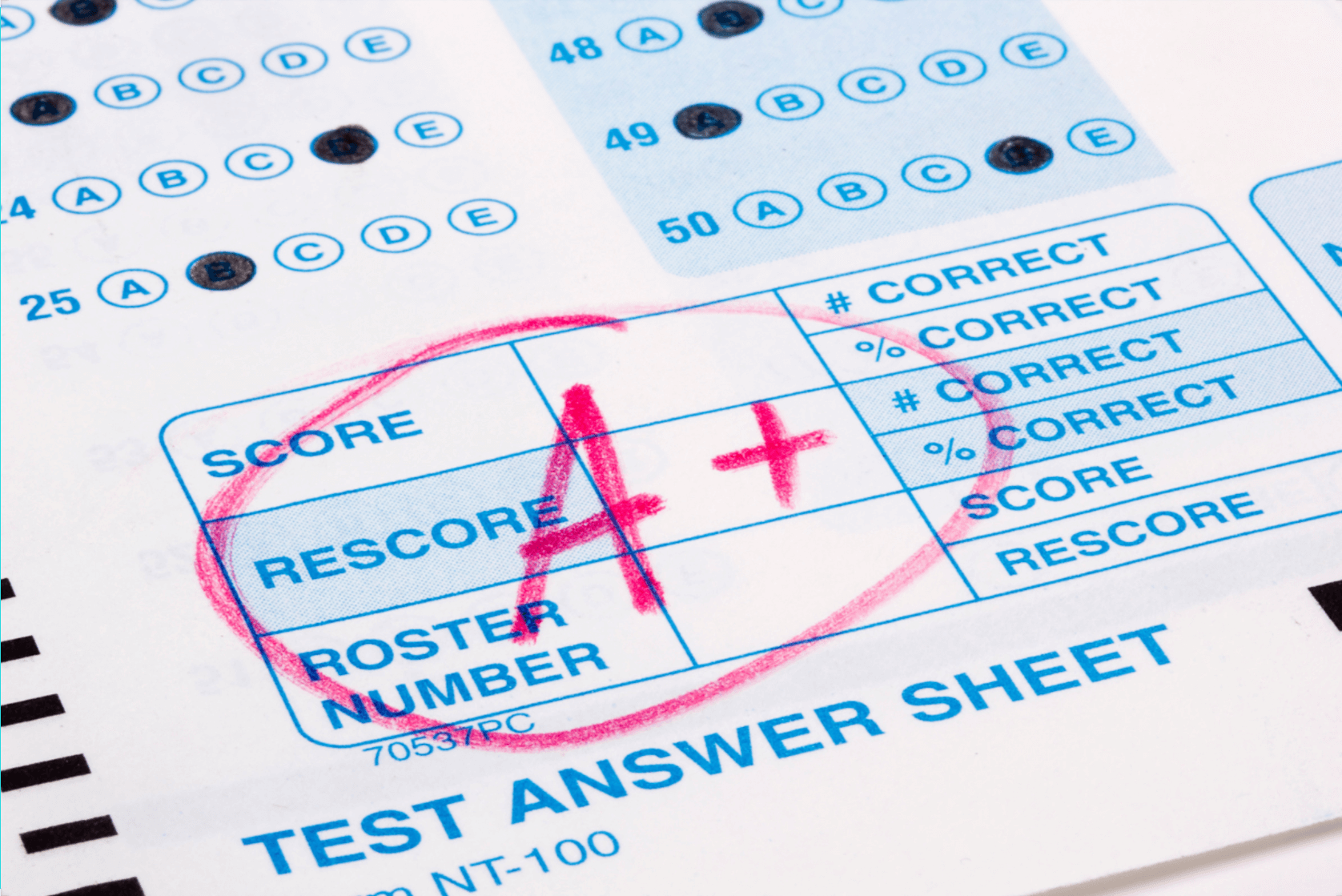Part I: What we knew in March and April of 2020
The global COVID-19 pandemic has without a doubt left an impact on every aspect of our lives, be it the economy and the most important thing – the next generation’s futures. As admissions consultants at Quantum Prep, we have attended IECA’s webinars to keep up to date with US college admission trends. The following is a summary of what we have learned in the past month. Our findings have shocked us, even after our combined decades of admissions consulting experience.
1. Corroborated and full school records are more important than ever

With admissions officers stating that they’ll take grades from online classes with “a spoonful of salt,” universities are placing an even bigger emphasis on past qualifications that can be confirmed, including taking a rigorous course selection, cumulative GPA, and any hard numbers from past public exams, such as the GCSEs, APs, and any SATs or ACTs. Admissions offices are also training their readers to review the student transcripts together with the letters of recommendation, looking for consistent information that stretches multiple years.
What that means for students is that they will need to play an even more active role in having frequent discussions with their subject teachers for letters of recommendation. A negative, or arguably worse, a generic letter may hurt students more than ever. It’s also critical to take any opportunities to sit for standardized tests and get the best results possible. Anything that can corroborate a strong school record will help create a convincing student profile.
2. Test cancellations may not change as much as you think

With both students and colleges in turmoil over SAT and ACT test cancellations, we’ve already seen major changes taking place:
- Many universities have announced that they’ll be making the SAT and ACT optional as a trial1“Cal State And Many Other Colleges Go Test Optional | Inside Higher Ed”. Insidehighered.Com, 2020, https://www.insidehighered.com/admissions/article/2020/04/20/cal-state-and-many-other-colleges-go-test- optional..
- Both the College Board (which runs the SAT and APs) and ACT are working hard to establish online “at home”2 “College Board And ACT Announce Plans To Continue Testing In The Fall | Inside Higher Ed”. Insidehighered.Com, 2020, https://www.insidehighered.com/admissions/article/2020/04/20/college-board-and-act-announce-plans-continue-testing-fall. versions of their respective tests3“Some Colleges Cite The Coronavirus To Go Test Optional | Inside Higher Ed”. Insidehighered.Com, 2020. https://www.insidehighered.com/admissions/article/2020/03/23/some-colleges-cite-coronavirus-go-test-optional 4 “Coronavirus SAT And PSAT-Related Updates”. Account Help, 2020, https://pages.collegeboard.org/sat-covid-19-updates.
- Athletic coaches are petitioning the NCAA to remove testing requirements for athletes5 “Athletic Recruiting (Webinar)”. 16th April 2020..
But, it’s critical for students to assess these changes in their own contexts. Remember, most policies are made in states for their local students in mind, not Hong Kong students. Universities, especially the most selective ones, will still welcome any hard numbers from past test scores or upcoming tests, even if they are running a Test-Optional policy. These universities still need to find ways to distinguish the “extraordinary” from the “very good,” especially with acceptance rates in the single digits.
3. Extracurriculars may be cancelled, but that doesn’t mean life has to stop

While universities are expecting all their students to stay home, even in Hong Kong, and follow social distancing guidelines, they’ve also always valued students who show initiative, and that isn’t going to change now. In fact, it has become easier than ever for universities to tell the difference between students who drive changes in their lives and those who only wait passively for opportunities.
In our connected world, opportunities abound for passionate students to continue to be socially and academically active even while social distancing. Community service is now more about what you’ve done for your family and neighbours. Hobbies and interests are migrating to online platforms that are accessible everywhere. Special talents in music, sports, and more can be showcased in online portfolios. And learning doesn’t need to stop at home, with free online university lectures, books, magazines, and documentaries right on your nearest digital device.
4. Colleges are looking to boost their visibility too

Students may worry about how their dream colleges are scrutinizing their applications but remember that colleges are also competing among themselves for the best candidates as well! With college campuses closed, summer on-campus events cancelled, and some colleges even considering not resuming in-person classes until January 20216 https://www.forbes.com/sites/susanadams/2020/04/13/boston-university-is-first-to-announce-it-may-postpone-its-fall-term-until-january-2021/#36b8670e4bd5 , many colleges are looking to boost their visibility too. This gives students a great opportunity to show demonstrated interest by joining their virtual tours, engaging on social media, even emailing admissions officers who are also stuck at home!
In conclusion, the US college admissions landscape has changed its face. Individuality, initiative and leadership qualities are now valued more than ever and with social distancing restrictions, made more difficult. Every student’s profile, strengths and interests are different, and the way to approach their own college applications must be uniquely strategized. Hong Kong is a tiny city, with a disproportionately large number of intelligent students with incredible scores and talents all fighting for the dismally small places earmarked for international students. The best next steps are speaking to your school counsellors and gaining advantages wherever you can.
Part II: How quickly things have changed

When we wrote Part I of this article, it was early April, and things were looking quite optimistic in the US. Although all the standardized tests dates up until summer had been cancelled, hopes were high that the College Board, the provider of the SAT, would be able to figure out how to administer tests remotely considering the at-home AP exams in May. At the same time, the ACT, which has been offering an online version of its tests for several years, was making plans to launch its own at-home version of the test by fall 2020 in case test centers were still closed.
Above all, many naively thought that COVID-19 would somehow go away by summer and schools would reopen in the fall. After all, the numbers of new cases in “hot zones” like New York City and LA County were falling. Many admissions officers were making plans to travel in the fall for recruitment purposes. Then in June, the nation’s number of new cases rose again, and the COVID-19 pandemic began to affect not only the big cities but also the suburban and even rural areas across the US. On July 1st, the University of Southern California, which had previously announced in June that its doors would remain open for the fall term, suddenly told every student not to return to campus. Then, other big-name universities like Harvard and MIT followed. By early August, most of the nation’s universities, colleges, and K-12 schools alike have either moved to 100% online learning or adopted a controversial hybrid model of operation. 7Superville, Denisa R. Hybrid School Schedules: More Flexibility; Big Logistical Challenges. 29 July 2020, www.edweek.org/ew/articles/2020/06/25/hybrid-school-schedules-more-flexibility-big-logistical.html.8Zweig, David. “Hybrid Schooling May Be the Most Dangerous Option of All.” Wired, Conde Nast, 6 Aug. 2020, www.wired.com/story/hybrid-schooling-is-the-most-dangerous-option-of-all/.
With these unprecedented changes taking place in the country’s schools and communities, college admission offices have changed their policies and attitudes accordingly.
1. The admission office has realized that full school records together with letters of recommendations from teachers and counselor might not be enough
A student’s school transcript is still the most important piece of information when considering a student for admissions. And as mentioned in Part I, admissions officers will take grades from online classes with “a spoonful of salt,” and so universities are placing an even bigger emphasis on past qualifications that can be confirmed, including rigorous course selections, cumulative GPA, and any hard numbers from past public exams, such as the GCSEs, APs, and SATs or ACTs. At the same time, admissions officers are trained to read transcripts together with letters of recommendation from teachers and school counselors to look for consistent performance in a student’s record.
However, with most schools choosing online learning or hybrid models this fall, along with the constant cancellations of public exams and a dissatisfying execution of the at-home AP exams this past May9Strauss, Valerie. “College Board Says New Online AP Tests Are Going Well – but Students Report Big Problems.” The Washington Post, WP Company, 15 May 2020, www.washingtonpost.com/education/2020/05/15/college-board-says-new-online-ap-tests-are-going-well-students-report-big-problems/., most admission officers have realized that there will no longer be many sources of hard and reliable numbers inside the applications this admissions cycle10Gruenbaum, David Benjamin. “Inside Higher Ed.” The College Board and ACT Can Save Testing (Opinion), 29 June 2020, www.insidehighered.com/admissions/views/2020/06/29/college-board-and-act-can-save-testing-opinion..
To make matters worse, many students, especially those from public schools, are unable to get their teachers and school counselors to write anything meaningful in the recommendations as interactions between them have been minimal for the past months. Therefore, admission officers have shifted their emphasis to having individual students be their own advocates. In fact, there is a new optional essay we nicknamed “The COVID Essay” inside the 2020-2021 Common Application which allows students to explain the effects COVID-19 has had on their “health and well-being, safety, family circumstances, future plans, and education, including access to reliable technology and quiet study spaces.”11“Your Future Starts Here.” Apply to College with Common App | Your Future Starts Here, www.commonapp.org/. With this said, if a student’s life has only been “mildly affected,” as it was explained to us during a recent college admission webinar, then it is entirely unnecessary for the student to write anything extra that may only serve to waste the admission officer’s time.
2. Constant test cancellations have changed many admission officers’ attitude towards standardized tests
Many schools have opted for test-optional policies when considering submitted scores, rather than a test-blind policy. The reason for this is so that schools will still be at liberty to consider submitted scores, since more emphasis has been placed on verified public examinations taken. With so much school-based data potentially losing its credibility (see pt. 1 above), admission officers are reverting back to test scores to predict a student’s potential to succeed academically in college.
In April 2020, many major universities such as the Ivy League schools announced their test-optional policy. At that time, many of the admission officers believed that there were still going to be opportunities for motivated seniors to take the SAT or ACT in August, September, October, November and December.
But as the COVID crisis drags on, it has become clear to every reasonable person that the chance for students anywhere to take the SAT/ACT during the remaining months of 2020 is abysmal. During the multiple webinars that took place during this past summer, we began seeing changes in the way our officers look at standardized tests.
“Don’t worry about having your tests being cancelled again and again, we will evaluate your lack of test scores IN CONTEXT!” is the consistent cry we have been hearing. However, only two months ago we were still hearing admission officers from the most selective schools emphasize how they wish to see their engineering candidates’ test scores.
By early August, a similar group of officers from these prestigious schools told us that if an engineering student is unable to submit their SATs or ACTs, we should focus on documenting the student’s activities and achievements in STEM, and make sure to explain with great detail the student’s credentials and eligibility to major in engineering in the supplement essay.
So, our ultimate recommendations to students regarding test scores are as follows:
i. If you think your existing test scores reflect your academic ability, send them in.
ii. If you live in a region where tests are offered, do your best and take them, as long as you feel physically safe to do so.
iii. Don’t ever risk your health and spend excessive resources to travel to another country or to another city to take standardized tests.
3. What students do online and at home has become MORE IMPORTANT than ever

In Part I of this article, we already discussed how students could and should continue their community service, hobbies, and interests with social distancing considerations in mind. Our students just have to be more creative.
With the continued lockdown and cancellation of school activities, the only change that I’ve observed is that students’ activities online and at home have become more interesting to admission officers. Some officers explicitly told us that they would look for online courses taken by students who claim to have a deep interest in STEM. Others suggested that students read books if they do not have high-speed internet. And nearly everyone said they would love to see students gain new skills while stuck at home, such as cooking, playing the guitar, or training their pets. One way or another, life goes on. A motivated individual will always find new things to learn and accomplish.
4. “Demonstrated Interest” is no longer enough
Merely signing up for college newsletters and attending virtual tours are no longer enough to distinguish your interest in your dream school from most of your competition this year. What admission officers want is your engagement with the school and the specific academic departments you are seeking to study under.
“Engagement” happens when a student takes a genuine interest in the school and the specific academic opportunities offered. When a student writes to the admission office to ask specific and personal questions about the application, this is engagement. When a student tries to make contact with current students in specific departments to know more details about the courses and research (that’s not already available online), this is engagement.
Inside the application, a student’s engagement is demonstrated when the student can articulate his or her personal and academic goals and the reasons he or she wants to study under a specific department of a particular school.
5. Budget cuts in the athletic department lead to opportunities for fully-paid athletes

One of the biggest things no one could foresee about US colleges in March/April 2020 was the cancellation of sports programs.
In the US, sports programs have long been a main attraction to students as well as a major revenue generator for many colleges12Gaines, Cork. “The 25 Schools That Make the Most Money in College Sports.” Business Insider, Business Insider, 13 Oct. 2016, www.businessinsider.com/schools-most-revenue-college-sports-2016-10.13 O’Connor, Liam. “Ivy League Athletics Are the New ‘Moneyball.’” The Princetonian, 10 Oct. 2019, www.dailyprincetonian.com/article/2019/10/ivy-league-athletics-are-the-new-money-ball.. Based on my personal experience with the admission office, most elite schools reserve around 20% of the freshmen slots for athletes; for schools that are especially sports-focused and well-funded, the number can get as high as nearly 30%. For many accomplished student-athletes, their outstanding achievements in sports provide them with a near-guaranteed path straight to their dream schools.
In early July, due to the pandemic, Stanford University announced that they were dropping eleven varsity programs after the 2020-21 season ends14Forde, Pat. “Stanford’s Cuts, Ivy League’s Fall Sports Decision Are Just the Beginning.” Sports Illustrated, 9 July 2020, , signaling the loss of scholarships and educational opportunities even among one of the most prestigious and well-funded schools in the US15Cash, Meredith. “Cincinnati, Stanford, and 17 Other Division I Schools Are Permanently Eliminating Dozens of Sports Programs in an Unexpected Loss from the Pandemic.” Insider, Insider, 8 July 2020, www.insider.com/college-sports-programs-cut-due-to-coronavirus-pandemic-2020-7..
However, the aftermath of this is that colleges which are still clinging onto their sports programs are now opening spaces for more student-athletes who will pay full tuition to enroll. To put things bluntly, a college recruiter from an elite university basically told us that “we are open to accept students with slightly less achievements provided they are fully paid.”
6. The increased numbers of students taking gap years this year have certainly affected the number of spaces available for the incoming class, but…
In early August, Harvard reported over 20% of its undergraduates are not enrolling in Fall 2020; instead, these students have elected to defer16Bikales, James S., and Kevin R. Chen. “Over 20 Percent of Harvard Undergrads Do Not Intend to Enroll in Fall 2020: News: The Harvard Crimson.” News | The Harvard Crimson, 7 Aug. 2020, www.thecrimson.com/article/2020/8/7/harvard-coronavirus-fall-enrollment-numbers/. . Across all schools in the US, and even in the most elite institutes, there was a sharp increase in the number of students that requested deferment – at MIT, 8% of its freshmen deferred, up from the normal 1% in the past; at Williams College, 90 students took a gap year as opposed to the usual 25 (Williams enrolls only ~500 students every year)17Krantz, Laura, and Deirdre Fernandes. “At Harvard, Other Elite Colleges, More Students Deferring Their First Year – The Boston Globe.” BostonGlobe.com, The Boston Globe, 6 Aug. 2020, www.bostonglobe.com/2020/08/06/metro/harvard-other-elite-colleges-more-students-deferring-their-first-year/. .
Concerned about our seniors’ chances to get admitted into their dream schools this year, we have been persistently asking the admissions offices in every webinar about how they plan to handle applications this year. The following are the takeaways from the Q&As:
i. Some schools, such as Princeton, simply stated that “depending on the number of deferrals, we cannot guarantee matriculation in a student’s preferred years because of enrollment and housing constraints”18“A Statement to Newly Enrolled Students About Deferral Requests | Princeton University Admission.” Princeton University, The Trustees of Princeton University, admission.princeton.edu/statement-newly-enrolled-students-about-deferral-requests..
ii. Schools with overseas campuses have made plans to put as many students as they can into those “safer” overseas campuses, such as the NYU-Shanghai campus.
iii. Schools with rigorous working relations with other overseas universities are making plans to put as many students abroad as possible for the fall semester.
iv. Large universities with sizable campuses and ample housing are generally less affected, such as Indiana University at Bloomington.
v. All admissions offices, large and small schools alike, have told us that they are going to work their hardest and try their best to “not let this year’s seniors down,” and these admission officers still encourage our students to apply for their dream schools – just that these seniors must be more open-minded and explore more options.
In summary, there is not going to be much of an advantage for our students to defer their applications to another year unless there are military, religious, or work-related obligations to fulfill. This is because next year, there will be another group of highly motivated and extremely competitive seniors to contend with.
Our final advice to students is that instead of worrying about factors that you can neither control nor predict, we should focus on making the most of our available resources and try our best to put our best foot forward.
Quantum Prep is an education consultancy that focuses on placing their students at the best colleges or universities. We boast of diverse results. In addition to the traditional rap sheet of prestigious university acceptances, our consultants like to highlight the different paths they have sent students on. All of our students are different; we are proud of our one-on-one tailored approach towards university counselling. Contact us for a complimentary 30-minute initial meeting, where you can get tailored individualized advice on how to put your best foot forward. Read our reviews to see what our clients think of us.
By Ally Ip, Director of Research
Published 15-09-2020
